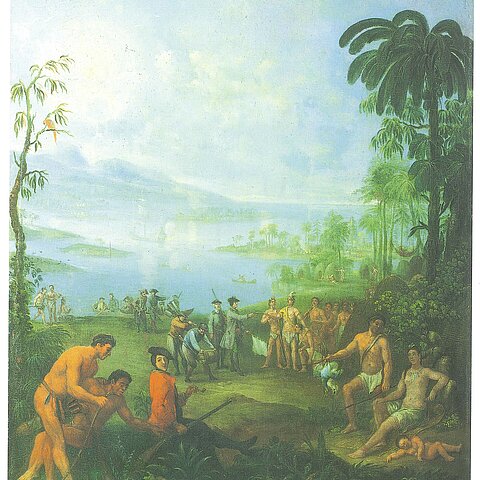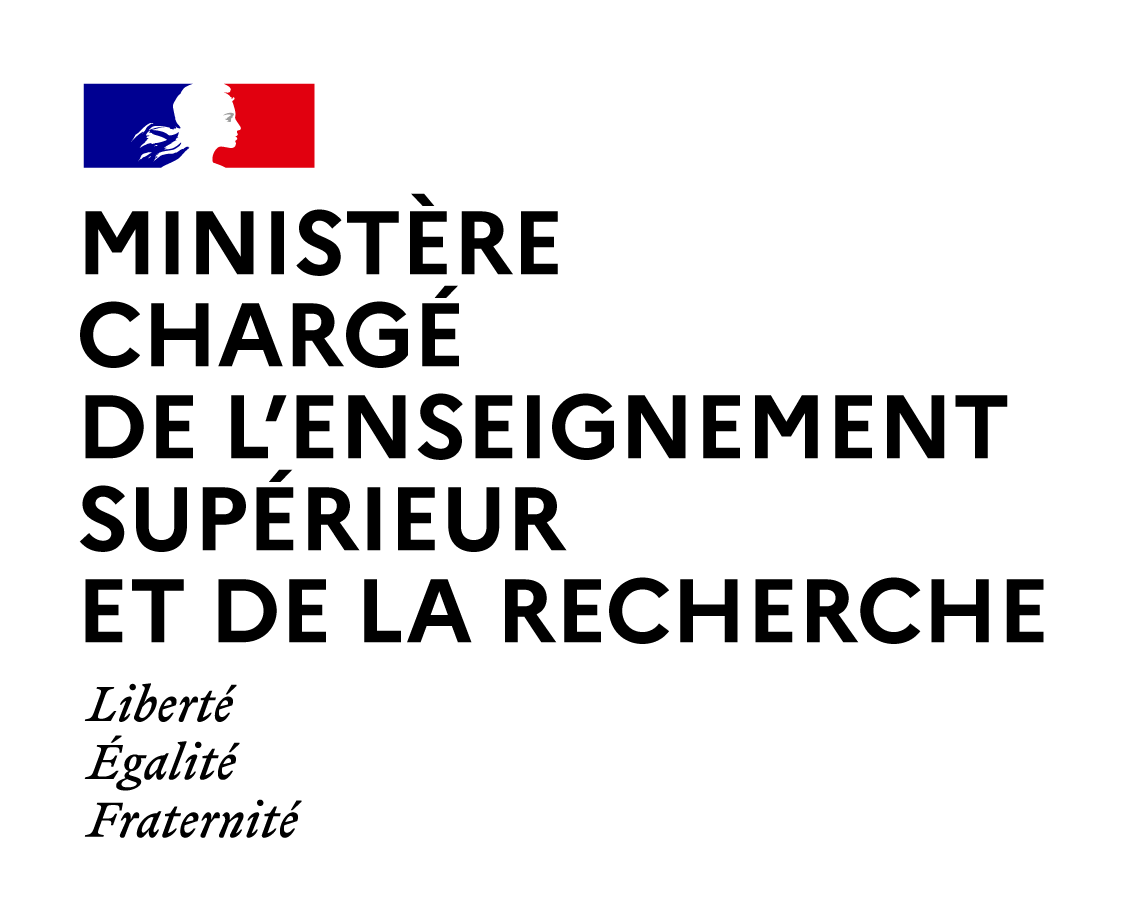Coord.: CONSUELO NARANJO OROVIO (Instituto de Historia - CCHS, CSIC, Madrid), MARTIN RODRIGO ALHARILLA (Institut Universitari Jaume Vicens Vives - Universitat Pompeu Fabra), STÉPHANE MICHONNEAU (EHEHI - Casa de Velázquez)
Org.: Instituto de Historia - Centro de Ciencias Humanas y Sociales - CSIC, EHEHI - Casa de Velázquez, Institut Universitari Jaume Vicens Vives-Universitat Pompeu Fabra
Col.: Agence nationale de la recherche
Presentation
The management and government of the colonies demanded in a continuous sense a knowledge and control of the territories. To know in order to control so that it is possible to adapt the colonial policy to the metropolitan needs and the colony demands. All of this belongs to the same system in which were involved the metropolis and the colonies. It is important to know the reformist stage and its characteristics since from the ideological and philosophical illustrate configuration – and its special starting in Spain and its overseas territories – appeared different ways of understanding the authority and its experience management. In this way, the Spanish reformism is the expression of a illustration “from above”, with poor social grounds.
Secondly, we will work on those instruments which were used by the metropolitan governments in order to have a right knowledge of the colonies, its population, natural resources, plants, animals, etc. ´The scientific expeditions, the population register and census were some of the tools which were useful to know precisely the state of the colonies. That knowledge was very useful to plan and to give content the colonial policies.
We try to analyse the strategies that the Iberian Empires deployed along the XIXth century and during the first quarter of the XXth century in order to follow governing the colonies and which way the colonial policies were being changed. In the middle of the Imperialism, and after the first colonial independence war, the metropolis took some decisions that leaded to a new reassessment of the policy relations with the introduction of liberal reforms in Cuba and Puerto Rico. Shortly before, the creation of Overseas Ministry as a specific management institution showed a renewed interest for the overseas management. The creation of policy parties and the incorporation of Las Antillas to the metropolitan parliament system, there are some of the main changes whose evolution along the time will be aim of special attention.
Other aspect to be studies will be the evolution of the public funds of the colonies, main element that shows the nature of the colonial relation. It will be studied the fiscal instruments designed by the metropolis in order to drain the resources generated from the economical activity of the colony to metropolitan’s own benefice, its quantity and its evolution with special focus on fiscal reforms. The evolution of the tax policy and the state income from Las Antillas are certainly bore on the transformation of the system of slave plantation.
Programme
Monday 25th June
CCHS - CSIC (Sala 0D1 «José Castillejos»)
9h30-10h
Opening
EDUARDO MANZANO MORENO
Director of CCHS-CSIC
Introduction
CONSUELO NARANJO OROVIO
Instituto de Historia del CCHS – CSIC
10h-11h30
Lecture
MIGUEL-ÁNGEL PUIG-SEMPER
CCHS-CSIC
El conocimiento de la naturaleza americana y filipina a través de los viajes y las expediciones científicas
Debate
Pause
12h-13h
Visit to the Tomás Navarro Tomás Library
With:
PILAR MARTÍNEZ OLMO
Director of the Library
15h-18h30
Lectures
MARTÍN RODRIGO ALHARILLA
Universitat Pompeu Fabra
España: Imperio y Nación (1824-1895). Entre la mobilización popular y los beneficios económicos
Debate
Pause
MARÍA DOLORES ELIZALDE PÉREZ-GRUESO
CCHS-CSIC
En las fronteras del Imperio: Filipinas en el siglo XIX
Debate
Tuesday 26th June
Casa de Velázquez (Room Pierre Paris)
10h-14h
Lectures
MARÍA DOLORES GONZÁLEZ RIPOLL
CCHS-CSIC
Ilustración y reformismo en América: su alcance y límites al borde de una nueva era
Debate
Pause
ALEXANDRE FERNANDEZ
Université Bordeaux III
D'un empire espagnol l'autre : les stratégies d'une « histoire connectée »
Debate
16h-19h30
Workshop
JAVIER GARCÍA BENÍTEZ
El Imperio Español y el Reino de Granada
PHILIPPE CASTEJON
Penser l'empire : projets politiques et représentations des élites impériales espagnoles à l'époque de Charles III
HÉCTOR JAIME MARTÍNEZ COVALEDA
Economía colonial y el movimiento popular de los comuneros de 1781 en el Nuevo Reino de Granada
JUAN FRANCSICO MARTÍNEZ PERIA
Las relaciones entre el proceso revolucionario haitiano y las luchas anticoloniales en Venezuela y Colombia (1789-1830)
XIMENA CASTILLO ARANDA
Las élites y la construcción del imaginario nacional chileno (1810-1830)
CARLOS ARNULFO ROJAS SALAZAR
Independencia y formación del Estado-Nación en Colombia (1808-1830)
Wednesday 27th June
Casa de Velázquez (Sala Pierre Paris)
10h-14h
Lectures
RAFAEL VALLADARES RAMÍREZ
CCHS-CSIC
¿Qué imperio portugués? Debates sobre la expansión y quiebra del ultramar luso
Debate
Pause
MAITE OJEDA MATA
Universitat Pompeu Fabra
Los judíos en el colonialismo español en Marruecos
Debate
16h-19h30
Workshop
MATHIEU AGUILERA
Compter les Espagnols, de Madrid à la Havane. État libéral et recensements de population à l'heure du renouveau impérial espagnol (1837-1898)
LIZBETH CHAVIANO PÉREZ
Desarrollo de la economía azucarera y la plantación en Cuba
SERGIO RUIZ GARCÍA
El asociacionismo español en Cuba (ss. XIX-XX)
SANDRO JIMÉNEZ MÍNGUEZ
La sanidad española en Filipinas y el monopolio del saber médico (1850-1898)
JESÚS MARCHÁN GUSTEMS
Relaciones hispano-marroquíes. Colonialismo español en Marruecos. Colonización agrícola en el protectorado de España en Marruecos
ADOLFO CUETO RODRÍGUEZ
La política colonial del marcelismo (1968-1974)
Thursday 28th June
Archivo Histórico Nacional
9h30-10h30
Visit to the Archivo Histórico Nacional
With:
ESPERANZA ADRADOS VILLAR
Jefa del Departamento de Referencias
10h30-14h
Lectures
INÉS ROLDÁN DE MONTAUD
CCHS-CISC
Las bases financieras del imperio español, 1800-1900
Debate
Pause
JUAN CARLOS GARAVAGLIA
Universitat Poñpeu Fabra-EHESS
El Estado en América Latina durante la primera mitad del XIX
Debate
14h
Closure
STÉPHANE MICHONNEAU
EHEHI-Casa de Velázquez


















